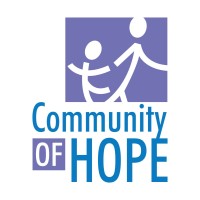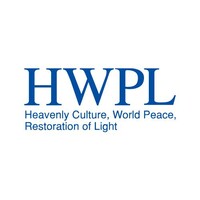
Community of Hope Company Cyber Security Posture
communityofhopedc.orgWith hope, one can accomplish anything. Families who struggle with poverty and homelessness can achieve their goals. They can overcome challenges like having no safe place to sleep, poor health, and unemployment, and enjoy connected families with happy and healthy children. With the help of our community of donors, volunteers and partners, Community of Hope stays focused on its mission, which is to create opportunities for low-income families in Washington, DC, including those experiencing homelessness, to achieve good health, a stable home, family-sustaining income, and hope. Community of Hope has worked tirelessly for almost four decades to impact the future for low-income, homeless and underserved families in Washington, DC. Originally founded as a compassionate ministry of the Church of the Nazarene, Community of Hope was incorporated as an independently-run nonprofit organization in 1980. As the needs of our community grew, we have expanded our services across the city, with the same holistic, compassionate approach that inspired our beginnings. With a team of more than 200 compassionate staff, hundreds of volunteers, and thousands of donors, we are building a thriving organization that is caring for families, improving lives and leading change. In 2012, Community of Hope was awarded The Washington Post Award for Excellence in Nonprofit Management by the Center for Nonprofit Advancement and The Washington Post. In 2014, 2016, 2017, and 2018 we were selected as one of The Washington Post 150 Top Workplaces based on feedback from our staff.
CH Company Details
cohdc
326 employees
3166.0
none
Non-profit Organization Management
communityofhopedc.org
Scan still pending
COM_2261064
In-progress
Between 200 and 800
This score is AI-generated and less favored by cyber insurers, who prefer the TPRM score.
 CH Global Score
CH Global Score.png)

Community of Hope Company Scoring based on AI Models
| Model Name | Date | Description | Current Score Difference | Score |
|---|---|---|---|---|
| AVERAGE-Industry | 03-12-2025 | This score represents the average cybersecurity rating of companies already scanned within the same industry. It provides a benchmark to compare an individual company's security posture against its industry peers. | N/A | Between 200 and 800 |
Community of Hope Company Cyber Security News & History
| Entity | Type | Severity | Impact | Seen | Url ID | Details | View |
|---|---|---|---|---|---|---|---|
| Community of Hope | Cyber Attack | 80 | 4 | 02/2022 | COM222219822 | Link | |
Rankiteo Explanation : Attack with significant impact with customers data leaksDescription: A data security incident involving unauthorized access to a COHDC employee's email account was reported to COHDC. The exposed information included Social Security numbers, driver’s license numbers, financial information, health insurance information, and health diagnostic information. They notified local law enforcement and the federal Department of Health and Human Services Office for Civil Rights and also notified individuals affected by this incident. | |||||||
Community of Hope Company Subsidiaries

With hope, one can accomplish anything. Families who struggle with poverty and homelessness can achieve their goals. They can overcome challenges like having no safe place to sleep, poor health, and unemployment, and enjoy connected families with happy and healthy children. With the help of our community of donors, volunteers and partners, Community of Hope stays focused on its mission, which is to create opportunities for low-income families in Washington, DC, including those experiencing homelessness, to achieve good health, a stable home, family-sustaining income, and hope. Community of Hope has worked tirelessly for almost four decades to impact the future for low-income, homeless and underserved families in Washington, DC. Originally founded as a compassionate ministry of the Church of the Nazarene, Community of Hope was incorporated as an independently-run nonprofit organization in 1980. As the needs of our community grew, we have expanded our services across the city, with the same holistic, compassionate approach that inspired our beginnings. With a team of more than 200 compassionate staff, hundreds of volunteers, and thousands of donors, we are building a thriving organization that is caring for families, improving lives and leading change. In 2012, Community of Hope was awarded The Washington Post Award for Excellence in Nonprofit Management by the Center for Nonprofit Advancement and The Washington Post. In 2014, 2016, 2017, and 2018 we were selected as one of The Washington Post 150 Top Workplaces based on feedback from our staff.
Access Data Using Our API

Get company history
.png)
CH Cyber Security News
HOPE Church renovations will benefit Grand Forks community at large, lead pastor says
The hope is to begin work on renovations in October, but at this time there isn't a set date, Knight said. The church is still in the process of ...
Camp Hope collaborates with Houston Hammers pickleball team to aid veterans with PTSD
Camp Hope collaborates with Houston Hammers pickleball team to aid veterans with PTSD · On March 18 The Houston Hammers held pickleball clinics ...
Defamation case against DEF CON terminated with prejudice
A Seattle court this week dismissed with prejudice the defamation case brought against DEF CON and its organizer Jeff Moss by former ...
LCC to settle data breach claims for $1.45 million
LCC's data breach was caused by an "unauthorized actor hacking" the college's internal computer systems, according to the lawyers who settled ...
Montgomery’s Hope Resale expands along Hwy. 105
Hope Resale sells clothing, home decor and furniture, and uses the proceeds to help widows, single parents and sponsor orphan adoptions through ...
Adobe Collaborates with Ethical Hackers to Build Safer, More Secure AI Tools
We're announcing the expansion of the Adobe bug bounty program to reward security researchers for discovering and responsibly disclosing bugs.
Active North Korean campaign targeting security researchers
Threat Analysis Group shares findings on a new campaign by North Korean actors targeting security researchers.
How IBM and schools worldwide collaborated to strengthen cybersecurity
IBM has provided USD 13 million in in-kind contributions to help K-12 public schools and educational institutions across the world help build cybersecurity ...
Center For Hope & Hamilton Community Health partner for community-wide blanket drive
Hamilton Community Health Network recently partnered with Catholic Charities' Center For Hope for a community-wide blanket drive in Flint.

CH Similar Companies

International Brotherhood of Boilermakers
Labor Organization Show more Show less

Corpo Nacional de Escutas
Official page of CNE - Corpo Nacional de Escutas - Escutismo Católico Português - the National Scout Organization for Portuguese Catholic Scouts. CNE is a non-profit, non-political and non-governmental youth association, aimed at the integral training of young people, based on the method created

HWPL
평화 실현의 확실한 답을 제시하는 HWPL (사)하늘문화세계평화광복(HWPL)은 전쟁종식과 세계평화를 목적으로 설립된 국제평화단체입니다. 또한, UN 경제사회이사회(ECOSOC) 특별 협의 지위, 공보국(DGC) 및 서울특별시에 등록된 평화 NGO 단체입니다. HWPL은 ‘하늘의 문화로 세계평화를 이루고 빛으로 지구촌을 회복한다’는 정신으로 전 세계에서 평화활동을 펼치고 있으며 협력단체인 (사)세계여성평화그룹(IWPG)과 산하단체인 국제청년평화그룹(IPYG), 그리고 전세계 지도자들로 이뤄진 자문위원 및 각 분야의 전문가들인 홍보

The Y (YMCA)
The Y: We're for youth development, healthy living and social responsibility. WHO WE ARE The Y is the nation’s leading nonprofit strengthening communities through youth development, healthy living and social responsibility. Across the U.S., 2,700 Ys engage 22 million men, women and children – regar

Anchor Trust
The Anchor Group was England’s largest not-for-profit provider of housing, care and support to older people up until November 2018 when Anchor merged with Hanover Housing Association to form Anchor Hanover Group. With a reputation built on more than 50 years of experience, 34,000 customers in over 1

Frequently Asked Questions (FAQ) on Cybersecurity Incidents
CH CyberSecurity History Information
Total Incidents: According to Rankiteo, CH has faced 1 incidents in the past.
Incident Types: The types of cybersecurity incidents that have occurred include ['Cyber Attack'].
Total Financial Loss: The total financial loss from these incidents is estimated to be {total_financial_loss}.
Cybersecurity Posture: The company's overall cybersecurity posture is described as With hope, one can accomplish anything. Families who struggle with poverty and homelessness can achieve their goals. They can overcome challenges like having no safe place to sleep, poor health, and unemployment, and enjoy connected families with happy and healthy children. With the help of our community of donors, volunteers and partners, Community of Hope stays focused on its mission, which is to create opportunities for low-income families in Washington, DC, including those experiencing homelessness, to achieve good health, a stable home, family-sustaining income, and hope. Community of Hope has worked tirelessly for almost four decades to impact the future for low-income, homeless and underserved families in Washington, DC. Originally founded as a compassionate ministry of the Church of the Nazarene, Community of Hope was incorporated as an independently-run nonprofit organization in 1980. As the needs of our community grew, we have expanded our services across the city, with the same holistic, compassionate approach that inspired our beginnings. With a team of more than 200 compassionate staff, hundreds of volunteers, and thousands of donors, we are building a thriving organization that is caring for families, improving lives and leading change. In 2012, Community of Hope was awarded The Washington Post Award for Excellence in Nonprofit Management by the Center for Nonprofit Advancement and The Washington Post. In 2014, 2016, 2017, and 2018 we were selected as one of The Washington Post 150 Top Workplaces based on feedback from our staff..
Detection and Response: The company detects and responds to cybersecurity incidents through {description_of_detection_and_response_process}.
Incident Details
Incident 1: Ransomware Attack
Title: {Incident_Title}
Description: {Brief_description_of_the_incident}
Date Detected: {Detection_Date}
Date Publicly Disclosed: {Disclosure_Date}
Date Resolved: {Resolution_Date}
Type: {Type_of_Attack}
Attack Vector: {Attack_Vector}
Vulnerability Exploited: {Vulnerability}
Threat Actor: {Threat_Actor}
Motivation: {Motivation}
Incident 2: Data Breach
Title: {Incident_Title}
Description: {Brief_description_of_the_incident}
Date Detected: {Detection_Date}
Date Publicly Disclosed: {Disclosure_Date}
Date Resolved: {Resolution_Date}
Type: {Type_of_Attack}
Attack Vector: {Attack_Vector}
Vulnerability Exploited: {Vulnerability}
Threat Actor: {Threat_Actor}
Motivation: {Motivation}
Common Attack Types: As of now, the company has not encountered any reported incidents involving common cyberattacks.
Identification of Attack Vectors: The company identifies the attack vectors used in incidents through {description_of_identification_process}.
Impact of the Incidents
Incident 1: Ransomware Attack
Financial Loss: {Financial_Loss}
Data Compromised: {Data_Compromised}
Systems Affected: {Systems_Affected}
Downtime: {Downtime}
Operational Impact: {Operational_Impact}
Conversion Rate Impact: {Conversion_Rate_Impact}
Revenue Loss: {Revenue_Loss}
Customer Complaints: {Customer_Complaints}
Brand Reputation Impact: {Brand_Reputation_Impact}
Legal Liabilities: {Legal_Liabilities}
Identity Theft Risk: {Identity_Theft_Risk}
Payment Information Risk: {Payment_Information_Risk}
Incident 2: Data Breach
Financial Loss: {Financial_Loss}
Data Compromised: {Data_Compromised}
Systems Affected: {Systems_Affected}
Downtime: {Downtime}
Operational Impact: {Operational_Impact}
Conversion Rate Impact: {Conversion_Rate_Impact}
Revenue Loss: {Revenue_Loss}
Customer Complaints: {Customer_Complaints}
Brand Reputation Impact: {Brand_Reputation_Impact}
Legal Liabilities: {Legal_Liabilities}
Identity Theft Risk: {Identity_Theft_Risk}
Payment Information Risk: {Payment_Information_Risk}
Average Financial Loss: The average financial loss per incident is {average_financial_loss}.
Commonly Compromised Data Types: The types of data most commonly compromised in incidents are {list_of_commonly_compromised_data_types}.
Incident 1: Ransomware Attack
Entity Name: {Entity_Name}
Entity Type: {Entity_Type}
Industry: {Industry}
Location: {Location}
Size: {Size}
Customers Affected: {Customers_Affected}
Incident 2: Data Breach
Entity Name: {Entity_Name}
Entity Type: {Entity_Type}
Industry: {Industry}
Location: {Location}
Size: {Size}
Customers Affected: {Customers_Affected}
Response to the Incidents
Incident 1: Ransomware Attack
Incident Response Plan Activated: {Yes/No}
Third Party Assistance: {Yes/No}
Law Enforcement Notified: {Yes/No}
Containment Measures: {Containment_Measures}
Remediation Measures: {Remediation_Measures}
Recovery Measures: {Recovery_Measures}
Communication Strategy: {Communication_Strategy}
Adaptive Behavioral WAF: {Adaptive_Behavioral_WAF}
On-Demand Scrubbing Services: {On_Demand_Scrubbing_Services}
Network Segmentation: {Network_Segmentation}
Enhanced Monitoring: {Enhanced_Monitoring}
Incident 2: Data Breach
Incident Response Plan Activated: {Yes/No}
Third Party Assistance: {Yes/No}
Law Enforcement Notified: {Yes/No}
Containment Measures: {Containment_Measures}
Remediation Measures: {Remediation_Measures}
Recovery Measures: {Recovery_Measures}
Communication Strategy: {Communication_Strategy}
Adaptive Behavioral WAF: {Adaptive_Behavioral_WAF}
On-Demand Scrubbing Services: {On_Demand_Scrubbing_Services}
Network Segmentation: {Network_Segmentation}
Enhanced Monitoring: {Enhanced_Monitoring}
Incident Response Plan: The company's incident response plan is described as {description_of_incident_response_plan}.
Third-Party Assistance: The company involves third-party assistance in incident response through {description_of_third_party_involvement}.
Data Breach Information
Incident 2: Data Breach
Type of Data Compromised: {Type_of_Data}
Number of Records Exposed: {Number_of_Records}
Sensitivity of Data: {Sensitivity_of_Data}
Data Exfiltration: {Yes/No}
Data Encryption: {Yes/No}
File Types Exposed: {File_Types}
Personally Identifiable Information: {Yes/No}
Prevention of Data Exfiltration: The company takes the following measures to prevent data exfiltration: {description_of_prevention_measures}.
Handling of PII Incidents: The company handles incidents involving personally identifiable information (PII) through {description_of_handling_process}.
Ransomware Information
Incident 1: Ransomware Attack
Ransom Demanded: {Ransom_Amount}
Ransom Paid: {Ransom_Paid}
Ransomware Strain: {Ransomware_Strain}
Data Encryption: {Yes/No}
Data Exfiltration: {Yes/No}
Ransom Payment Policy: The company's policy on paying ransoms in ransomware incidents is described as {description_of_ransom_payment_policy}.
Data Recovery from Ransomware: The company recovers data encrypted by ransomware through {description_of_data_recovery_process}.
Regulatory Compliance
Incident 1: Ransomware Attack
Regulations Violated: {Regulations_Violated}
Fines Imposed: {Fines_Imposed}
Legal Actions: {Legal_Actions}
Regulatory Notifications: {Regulatory_Notifications}
Incident 2: Data Breach
Regulations Violated: {Regulations_Violated}
Fines Imposed: {Fines_Imposed}
Legal Actions: {Legal_Actions}
Regulatory Notifications: {Regulatory_Notifications}
Regulatory Frameworks: The company complies with the following regulatory frameworks regarding cybersecurity: {list_of_regulatory_frameworks}.
Ensuring Regulatory Compliance: The company ensures compliance with regulatory requirements through {description_of_compliance_measures}.
Lessons Learned and Recommendations
Incident 1: Ransomware Attack
Lessons Learned: {Lessons_Learned}
Incident 2: Data Breach
Lessons Learned: {Lessons_Learned}
Incident 1: Ransomware Attack
Recommendations: {Recommendations}
Incident 2: Data Breach
Recommendations: {Recommendations}
Key Lessons Learned: The key lessons learned from past incidents are {list_of_key_lessons_learned}.
Implemented Recommendations: The company has implemented the following recommendations to improve cybersecurity: {list_of_implemented_recommendations}.
References
Additional Resources: Stakeholders can find additional resources on cybersecurity best practices at {list_of_additional_resources}.
Investigation Status
Incident 1: Ransomware Attack
Investigation Status: {Investigation_Status}
Incident 2: Data Breach
Investigation Status: {Investigation_Status}
Communication of Investigation Status: The company communicates the status of incident investigations to stakeholders through {description_of_communication_process}.
Stakeholder and Customer Advisories
Incident 1: Ransomware Attack
Stakeholder Advisories: {Stakeholder_Advisories}
Customer Advisories: {Customer_Advisories}
Incident 2: Data Breach
Stakeholder Advisories: {Stakeholder_Advisories}
Customer Advisories: {Customer_Advisories}
Advisories Provided: The company provides the following advisories to stakeholders and customers following an incident: {description_of_advisories_provided}.
Initial Access Broker
Incident 1: Ransomware Attack
Entry Point: {Entry_Point}
Reconnaissance Period: {Reconnaissance_Period}
Backdoors Established: {Backdoors_Established}
High Value Targets: {High_Value_Targets}
Data Sold on Dark Web: {Yes/No}
Incident 2: Data Breach
Entry Point: {Entry_Point}
Reconnaissance Period: {Reconnaissance_Period}
Backdoors Established: {Backdoors_Established}
High Value Targets: {High_Value_Targets}
Data Sold on Dark Web: {Yes/No}
Monitoring and Mitigation of Initial Access Brokers: The company monitors and mitigates the activities of initial access brokers through {description_of_monitoring_and_mitigation_measures}.
Post-Incident Analysis
Incident 1: Ransomware Attack
Root Causes: {Root_Causes}
Corrective Actions: {Corrective_Actions}
Incident 2: Data Breach
Root Causes: {Root_Causes}
Corrective Actions: {Corrective_Actions}
Post-Incident Analysis Process: The company's process for conducting post-incident analysis is described as {description_of_post_incident_analysis_process}.
Corrective Actions Taken: The company has taken the following corrective actions based on post-incident analysis: {list_of_corrective_actions_taken}.
Additional Questions
General Information
Ransom Payment History: The company has {paid/not_paid} ransoms in the past.
Last Ransom Demanded: The amount of the last ransom demanded was {last_ransom_amount}.
Last Attacking Group: The attacking group in the last incident was {last_attacking_group}.
Incident Details
Most Recent Incident Detected: The most recent incident detected was on {most_recent_incident_detected_date}.
Most Recent Incident Publicly Disclosed: The most recent incident publicly disclosed was on {most_recent_incident_publicly_disclosed_date}.
Most Recent Incident Resolved: The most recent incident resolved was on {most_recent_incident_resolved_date}.
Impact of the Incidents
Highest Financial Loss: The highest financial loss from an incident was {highest_financial_loss}.
Most Significant Data Compromised: The most significant data compromised in an incident was {most_significant_data_compromised}.
Most Significant System Affected: The most significant system affected in an incident was {most_significant_system_affected}.
Response to the Incidents
Third-Party Assistance in Most Recent Incident: The third-party assistance involved in the most recent incident was {third_party_assistance_in_most_recent_incident}.
Containment Measures in Most Recent Incident: The containment measures taken in the most recent incident were {containment_measures_in_most_recent_incident}.
Data Breach Information
Most Sensitive Data Compromised: The most sensitive data compromised in a breach was {most_sensitive_data_compromised}.
Number of Records Exposed: The number of records exposed in the most significant breach was {number_of_records_exposed}.
Ransomware Information
Highest Ransom Demanded: The highest ransom demanded in a ransomware incident was {highest_ransom_demanded}.
Highest Ransom Paid: The highest ransom paid in a ransomware incident was {highest_ransom_paid}.
Regulatory Compliance
Highest Fine Imposed: The highest fine imposed for a regulatory violation was {highest_fine_imposed}.
Most Significant Legal Action: The most significant legal action taken for a regulatory violation was {most_significant_legal_action}.
Lessons Learned and Recommendations
Most Significant Lesson Learned: The most significant lesson learned from past incidents was {most_significant_lesson_learned}.
Most Significant Recommendation Implemented: The most significant recommendation implemented to improve cybersecurity was {most_significant_recommendation_implemented}.
References
Most Recent Source: The most recent source of information about an incident is {most_recent_source}.
Most Recent URL for Additional Resources: The most recent URL for additional resources on cybersecurity best practices is {most_recent_url}.
Investigation Status
Current Status of Most Recent Investigation: The current status of the most recent investigation is {current_status_of_most_recent_investigation}.
Stakeholder and Customer Advisories
Most Recent Stakeholder Advisory: The most recent stakeholder advisory issued was {most_recent_stakeholder_advisory}.
Most Recent Customer Advisory: The most recent customer advisory issued was {most_recent_customer_advisory}.
Initial Access Broker
Most Recent Entry Point: The most recent entry point used by an initial access broker was {most_recent_entry_point}.
Most Recent Reconnaissance Period: The most recent reconnaissance period for an incident was {most_recent_reconnaissance_period}.
Post-Incident Analysis
Most Significant Root Cause: The most significant root cause identified in post-incident analysis was {most_significant_root_cause}.
Most Significant Corrective Action: The most significant corrective action taken based on post-incident analysis was {most_significant_corrective_action}.
What Do We Measure?
















Every week, Rankiteo analyzes billions of signals to give organizations a sharper, faster view of emerging risks. With deeper, more actionable intelligence at their fingertips, security teams can outpace threat actors, respond instantly to Zero-Day attacks, and dramatically shrink their risk exposure window.
These are some of the factors we use to calculate the overall score:
Identify exposed access points, detect misconfigured SSL certificates, and uncover vulnerabilities across the network infrastructure.
Gain visibility into the software components used within an organization to detect vulnerabilities, manage risk, and ensure supply chain security.
Monitor and manage all IT assets and their configurations to ensure accurate, real-time visibility across the company's technology environment.
Leverage real-time insights on active threats, malware campaigns, and emerging vulnerabilities to proactively defend against evolving cyberattacks.




